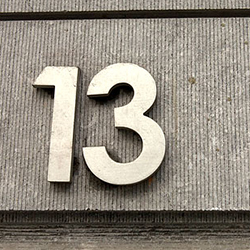
Today we’re going to explore five main reasons why people choose to file Chapter 13 bankruptcy.
1. Stop Foreclosures, Repossessions and Garnishments
The second you file Chapter 13 bankruptcy, banks and other creditors have to cease their collection efforts. That means that they can no longer foreclose on your house or repossess your vehicle.
This halt in collections can be stopped for the entire duration of the case, which can last as long as five years, whereas with a Chapter 7 bankruptcy, the creditors must only stop for a few months.
2. Give Yourself More Time To Catch Up On A Loan
Chapter 13 bankruptcy provides a way to catch up on overdue payments without paying interest through installment payments.
For example, if you were $9,000 behind on your mortgage, you could request to repay that amount during the course of 57 months. Each payment would be about $158 and would get sent to a Chapter 13 trustee who distributes that money to your mortgage company.
If you make all of the installment payments (part of your Chapter 13 plan) while continuing to make all of your usual monthly payments, you’re considered all caught up when the installment payments have been paid.
In this case, Chapter 13 bankruptcy has bought you more time to pay the money you owe.
3. Save Property You Couldn’t Under Chapter 7 Bankruptcy
Exemption laws, which vary from state to state, allow you to keep certain properties when you file for bankruptcy.
Sometimes people have so many properties that they won’t all be protected if they file for Chapter 7, but Chapter 13 bankruptcy gives you the ability to pay the value of the extra property during the course of your bankruptcy plan (usually three to five years for Chapter 13).
If your property was $5,000 more than what the exemption allowed, then you would pay out the $5,000 over the course of your plan. If you had a five-year bankruptcy plan, that comes to about $84 a month.
4. You Have Too Much Income For Chapter 7
Oddly enough some people find themselves in a situation where they have too much income to file for Chapter 7 bankruptcy.
To figure out whether you have too much income to file Chapter 7, you must do the disposable income test. Taking a look at monthly expenses, take away the debt that Chapter 7 would erase. Now, look at the amount of money it takes to cover the debts that Chapter 7 does not eliminate. If you still have income left over after paying those debts, then you have too much income to file Chapter 7.
With too much income to file Chapter 7, you can still file Chapter 13 bankruptcy. With Chapter 13, you must pay the Court the extra income for 36 months, but the flip side is that you can pay all of your bills.
5. Payments Are Cheaper with Chapter 13 than Chapter 7
Sometimes the bottom line is cheaper with Chapter 13 bankruptcy.
For example, let’s say you owe $16,000 on a car that’s only worth $10,000. With Chapter 7, you would have to pay back the full $16,000. With Chapter 13 bankruptcy, you only have to back the value of the car. Since that’s $6,000 cheaper, you would likely have lower monthly payments too.
